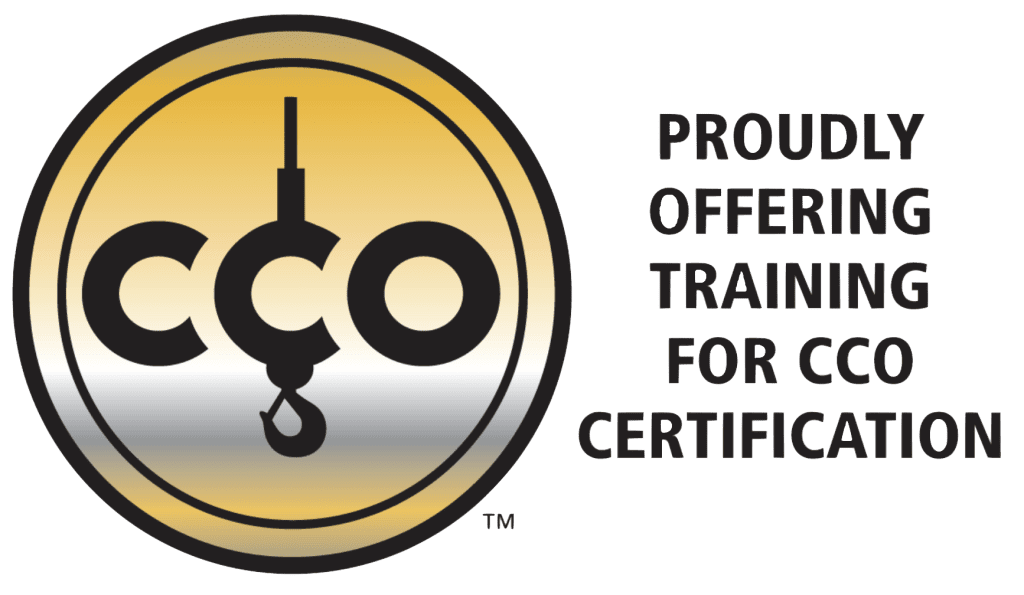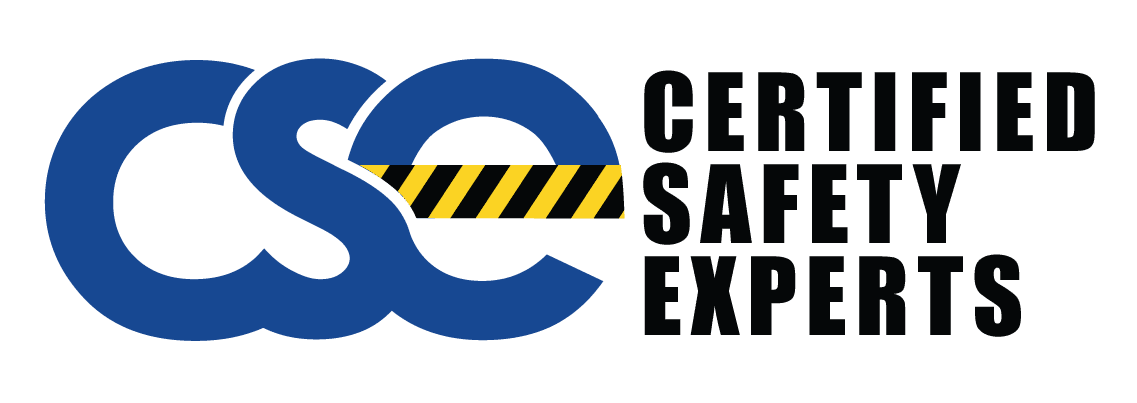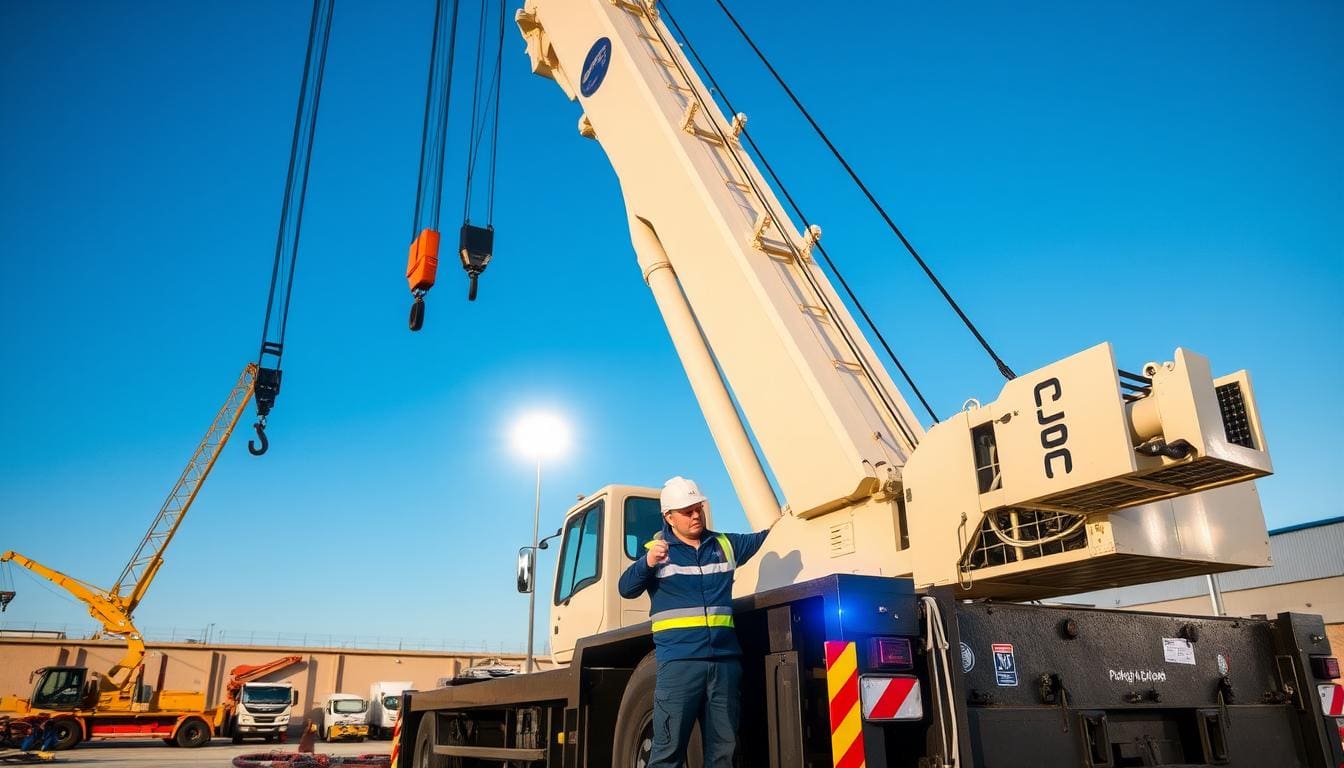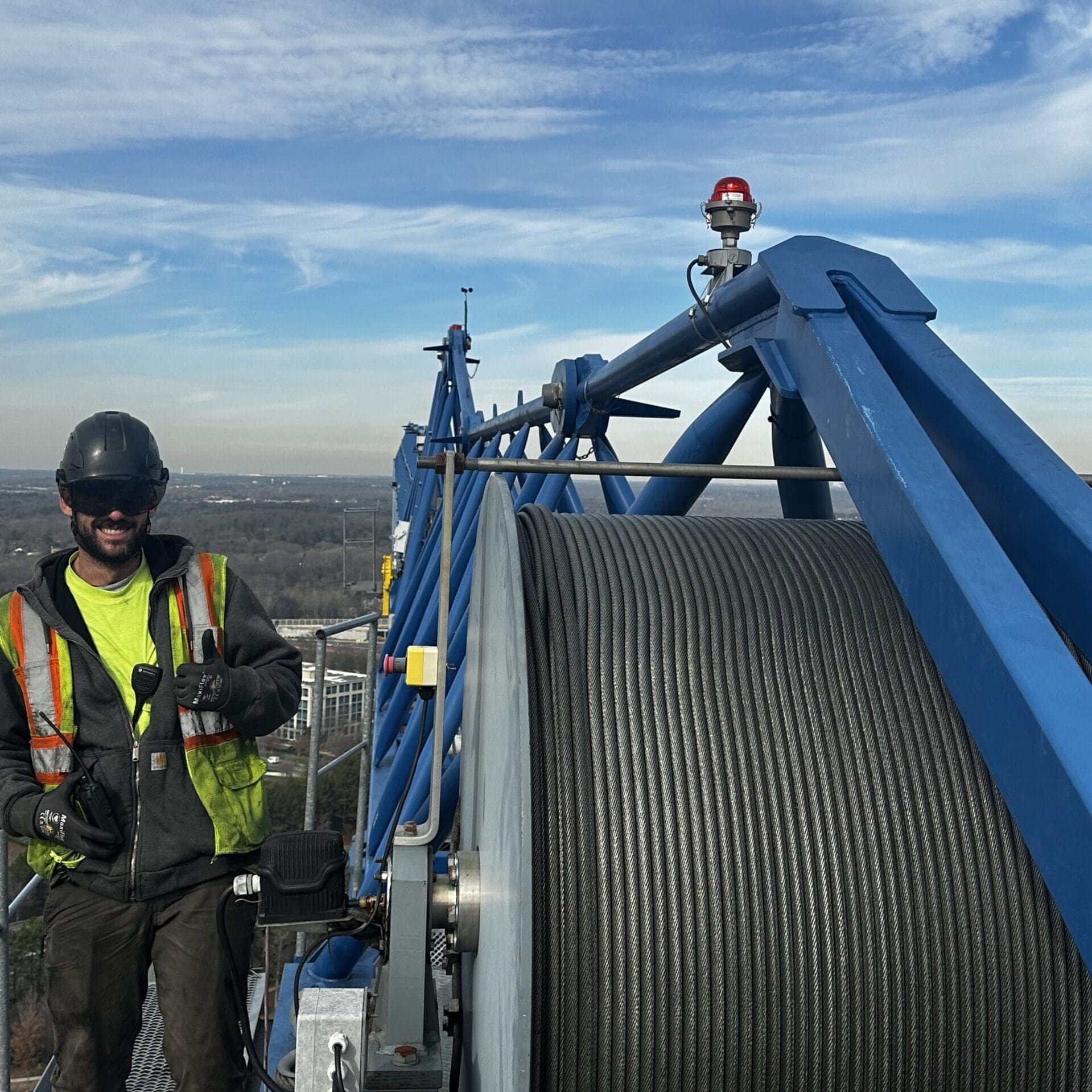Crane safety inspections are key to keeping both machines and people safe they are essential for mobile crane maintenance.
Regular inspections help avoid costly repairs and reduce downtime they follow manufacturers guidelines and meet regulatory standards this shows that preventing problems is better than fixing them later, especially for heavy machinery.
Ensuring Operational Safety with Routine Mobile Crane Inspections
Mobile crane operations rely on a key principle: operational safety this is achieved through regular and thorough inspections these checks keep the cranes in top shape, preventing accidents and ensuring mechanical integrity.
Maintaining Mechanical Integrity
Keeping mobile cranes in good condition is vital. Regular inspections spot potential failures that could cause big accidents. By following strict inspection rules, we meet industry standards and keep our equipment reliable and working well.
The Role of Inspections in Preventing Accidents
Inspections play a big role in preventing accidents on worksites they help us find problems early, keeping our team and the public safe. Our focus on regular inspections helps us avoid downtime and stay ready to work.
Inspection Protocols and Standards
- Daily Visual Checks: Quick looks to spot any damage or wear.
- Monthly In-depth Analysis: Detailed checks to make sure key parts work right.
- Annual Certifications: Full reviews to follow OSHA and ANSI rules, ensuring crane safety for a year.
Our inspection protocols are more than just steps; they’re our promise of safety and quality. By sticking to these standards, we protect our operations and boost productivity.
Compliance with Regulations in Mobile Crane Operations
It’s vital to know and follow the rules for safe and legal mobile crane use. We’ll cover how to meet OSHA standards and local and federal laws. This way, your work will be both legal and safe.
Adhering to OSHA Guidelines
Following OSHA rules is a must for mobile crane work. It sets the safety and work standards for all industries. Here are important things operators need to remember:
- Keep safety plans up-to-date with OSHA’s newest rules.
- Make sure crane operators are trained and certified as OSHA requires.
- Do regular checks and maintenance to avoid safety issues.
Navigating Local and Federal Inspection Requirements
Knowing both local and federal rules is key for following the law. These rules can change often and differ by area:
- Get advice from legal experts or compliance officers who know mobile crane rules.
- Keep all records and documents current to help with inspections.
- Go to seminars and training on new crane laws and changes.
The Economic Impact of Regular Crane Maintenance
We see crane maintenance as more than just a rule. It’s a smart move that boosts our operational efficiency and saves money. By keeping cranes in good shape, we avoid sudden breakdowns and get the most out of our maintenance.
Keeping cranes running smoothly saves money.
- It cuts down on unexpected downtime, keeping projects on track and making clients happy.
- It saves a lot of money by avoiding big repairs or even replacing parts and labor.
- It also makes the crane worth more when you sell it, keeping it in top shape for years.
Studies show that preventive maintenance is better than fixing things after they break. It means less emergency repairs and longer times between big overhauls. This leads to big savings and a better crane maintenance ROI over time.
Regular crane maintenance is proven to be smart. It makes us reliable and forward-thinking. It also brings real economic benefits.
Extending the Lifespan of Your Mobile Crane Through Inspections
Regular inspections are key to keeping mobile cranes running well for longer they help ensure safety and boost the crane’s lifespan this is crucial for both durability and efficiency.
We’ve developed a special maintenance plan for mobile cranes its based on the crane’s environment and how it’s used this approach helps keep cranes working longer.
- Identification and Rectification: Regular checks catch problems early this stops them from getting worse and keeps the crane safe and working right.
- Custom Maintenance Schedules: We make maintenance plans based on how much the crane is used and where it is. This keeps it in top shape and avoids damage.
We work with manufacturers to learn how to make cranes last longer. Our research shows that regular maintenance is key. It makes the equipment reliable and keeps our teams focused on maintenance.
Our goal is to go beyond just meeting safety standards. We want our mobile cranes to perform at their best for as long as possible. Following these maintenance tips is vital for anyone wanting to get the most out of their crane.
Case Studies: Best Practices in Mobile Crane Operations
We look at mobile crane case studies to find top practices that boost safety and efficiency. These studies show how careful inspections by leading companies lead to lasting success in crane use.
Now, let’s see examples where high standards in mobile crane work have raised the bar in construction and industry:
- Enhanced Safety Protocols: Daily checks and live monitoring cut down on accidents and downtime.
- Efficient Operation Schedules: Using automated tools for planning, cranes run smoothly without stops.
- Advanced Training Programs: New safety and emergency training for technicians.
These examples are more than just success stories. They offer real steps to follow for better crane work. They help shape new ways to improve crane operations, making them safer and more efficient.
Innovations in Mobile Crane Inspection Technology
The world of industrial machinery is changing fast. New crane inspection technology is making maintenance and safety better. We’ve seen big improvements that make things more efficient and reliable.
Digital tools are key to these changes. They help us inspect cranes more accurately and quickly. These tools are essential for regular checks and spotting problems before they happen.
- Digital Inspection Checklists: Digital checklists replace old paper ones they capture data in real-time and update instantly this gives a clear picture of the crane’s health.
- Remote Monitoring Systems: These systems watch cranes all the time they show how they’re doing and alert us to any issues that might cause problems.
Using data analytics in crane checks is a big step forward. It helps us predict and prevent problems this technology is at the heart of modern maintenance tools. It makes decisions better and keeps cranes running longer.
- Predictive Maintenance: Smart algorithms help predict when cranes might break down this lets us fix them before they stop working, saving time and money.
- Increased Traceability: Every inspection step is recorded digitally this creates a permanent record that makes things more accountable and traceable.
Many companies have seen big gains in efficiency and safety with these new technologies. We’re dedicated to keeping up with the latest in crane operations. We’re always looking for ways to make our equipment stronger and more reliable.
Training and Certification for Mobile Crane Inspectors
We are dedicated to keeping mobile crane operations safe and efficient. Certified crane inspectors play a key role in this they check that every crane follows strict safety rules. To do this, they go through tough training programs.
These programs teach them the technical skills and how to spot dangers. Inspectors learn to find problems before they become big safety issues.
To become a certified crane inspector there’s a long certification process they need to know a lot about crane mechanics and safety rules. They learn through classes and hands-on training with experts.
This way, they can make sure cranes are safe and work well. But, being a crane inspector is not just a one-time job. The world of crane safety and technology keeps changing.
So, inspectors need to keep learning. Programs like those from the National Commission for the Certification of Crane Operators (NCCCO) help them stay up-to-date this keeps them as the safety leaders in the crane world.




